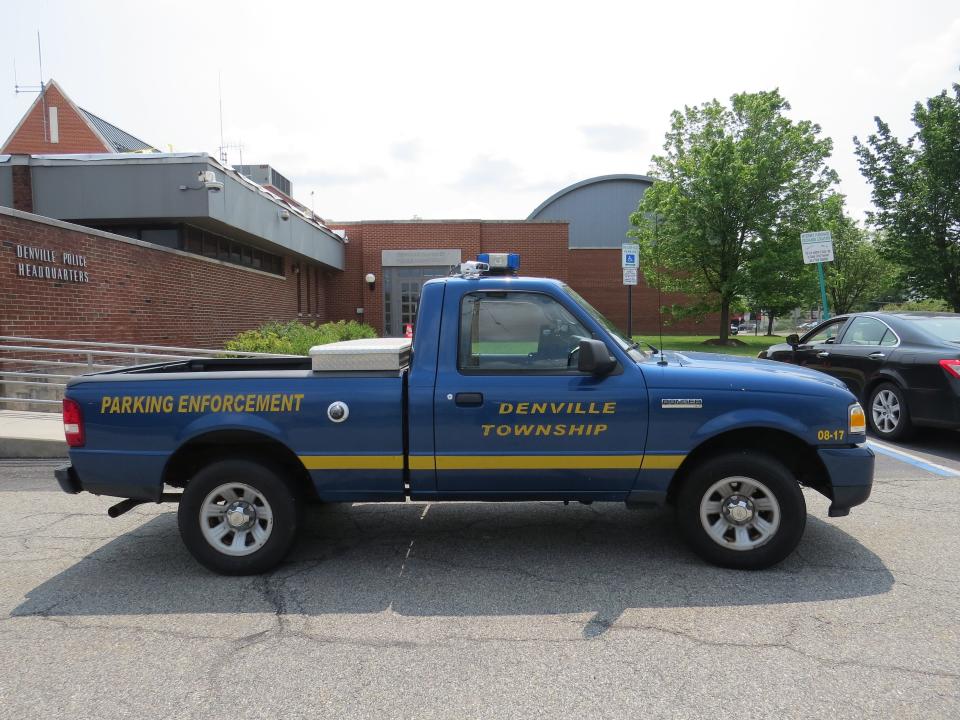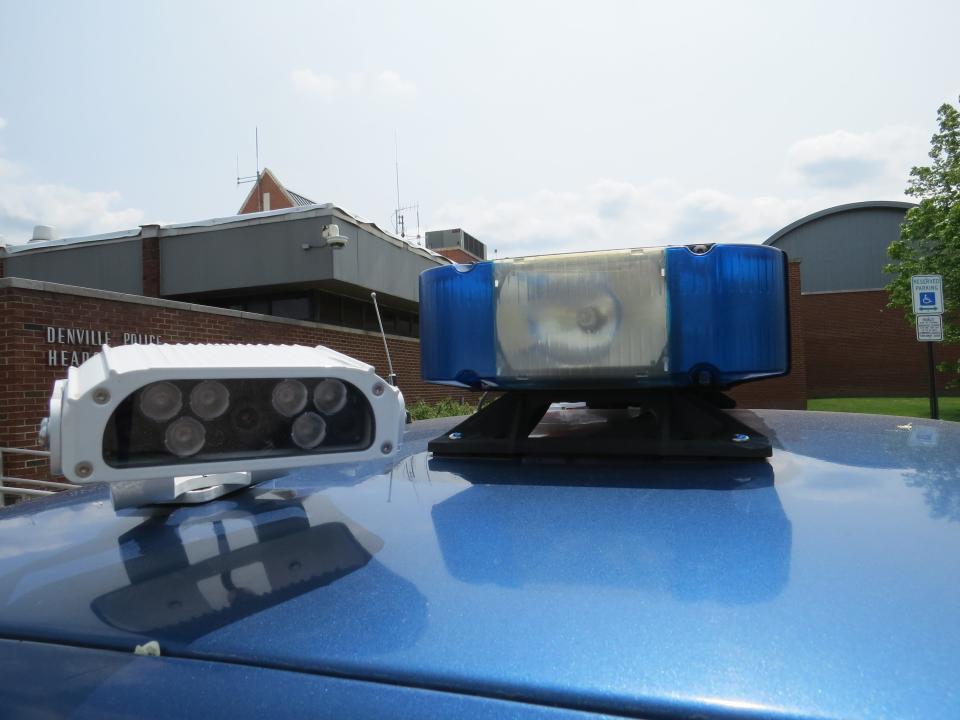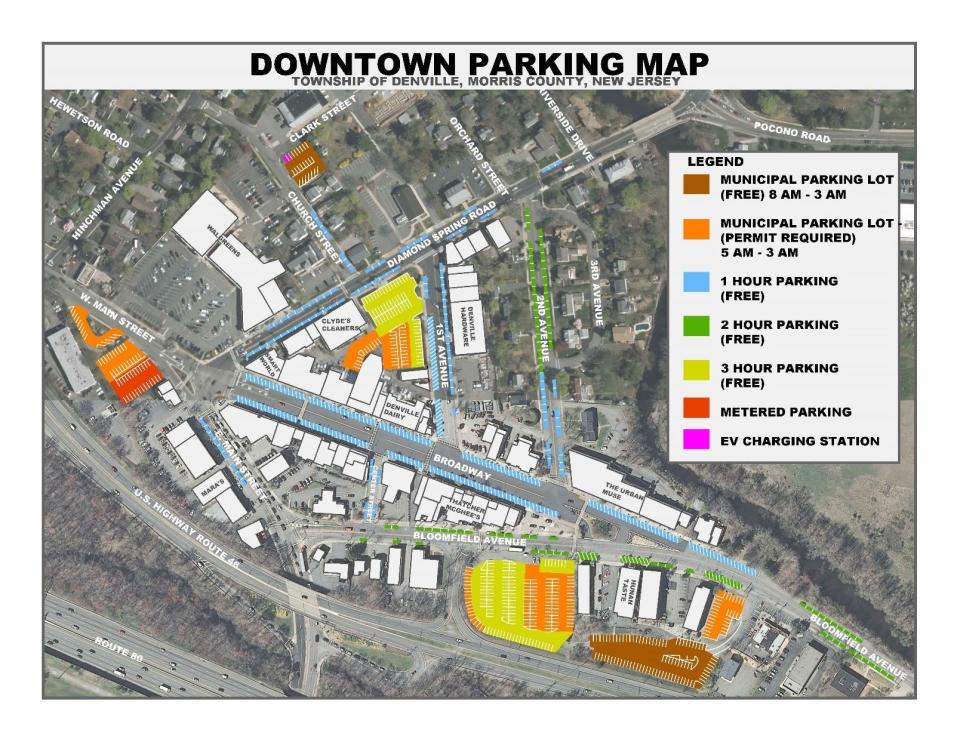Ditching tire chalk, NJ town goes digital to nab parking violators
DENVILLE — Chalk up another win for modern technology.
In this Morris County town, the days of parking enforcement officers manually chalking tires downtown in search of violators will come to an end on Friday.
Those officers will still write tickets. But instead of a chalk stick, they'll be armed with automated license plate reading equipment, a high-tech system of computers and digital cameras that can spot parking offenders and document the infraction with photos and time stamps without ever leaving their patrol vehicles.

"This is getting us from 1901, chalking the tires, to something that is much more accurate for us," said Denville police Capt. Jeffrey Tucker.
Law enforcement agencies on the state, county and municipal levels have increasingly used ALPR technology for a variety of purposes, from spotting stolen cars or vehicles under Silver and Amber alerts to security at large events.
Gov. Phil Murphy announced a $10 million grant program last year to expand its use amid a surge in auto thefts in the Garden State. And while some privacy advocates have raised concerns about a system that can potentially track unsuspecting residents wherever they drive, law enforcement leaders say the technology has become an essential part of police work in New Jersey.
Denville, like many local police departments, already has deployed the technology on patrol vehicles. Now the department's parking-enforcement vehicle has been equipped with a combination license plate reader and camera system for its mission.
"As the vehicle is driving down the street, there are several cameras that scan for license plates," Tucker explained. "It also takes images of the vehicles and closer images of the tire area. It scans all the plates and puts them into the database."
As the parking enforcement officer continues "doing loops" around town, the system will alert the officer to vehicles it flags for violations.

"It's going to show the before image of the license plate [and] the after image of the license plate to make sure it was the same," Tucker said. "It's going to show the initial picture of the vehicle and the picture being scanned now to make sure it is the same make and model of vehicle."
Theft: With catalytic converter theft soaring, NJ law aims at scrap yards that buy stolen devices
Morris news: Rockaway Township cops have new contract after 18-month impasse
The system also takes close-ups of tires to ensure they are not in the same position "in case the car drove around the block and just happened to park in the same spot again," Tucker added.
The additional accuracy and documentation provided by the ALPR system give it significant advantages over traditional tire chalk marks, "which you can't use when it's raining or snowing," Tucker said.
Is tire chalking constitutional?
Perhaps more importantly, tire chalk marks may soon become obsolete: The 6th U.S. Circuit Court of Appeals in Cincinnati ruled last year in favor of a woman who challenged police in Saginaw, Michigan, for 14 parking tickets she received as a result of chalking her tires.
The court did not specifically conclude the chalk marks were a violation of the Fourth Amendment right against illegal search or seizure in the U.S. Constitution. But it also ruled that "suspicionless tire chalking" does not "constitute a valid administrative search."
The ruling does not yet affect New Jersey, which is covered by a different federal appeals court. "We can still chalk tires here for now, but the writing is on the wall," Tucker said. "It's all installed and being trained on some practice runs."

Denville police announced the change on social media and included a parking map to remind motorists where they can park and for how long.
Tucker is unaware of other New Jersey towns rolling out the ALPR technology for parking enforcement, and believes Denville is one of the first.
"I know it's being used in some larger cities," he said. "It should eliminate some of the issues and complaints we've had in the past. Now we will have a before picture, date- and time-stamped, and it's also a GPS marker. So we can say to someone in a one-hour zone, 'Here's your car at 1 p.m., here's your car at 2:20 p.m., and it never moved.'"
William Westhoven is a local reporter for DailyRecord.com. For unlimited access to the most important news from your local community, please subscribe or activate your digital account today.
Email: wwesthoven@dailyrecord.com
Twitter: @wwesthoven
This article originally appeared on Morristown Daily Record: Tire chalking is going digital in this NJ town

